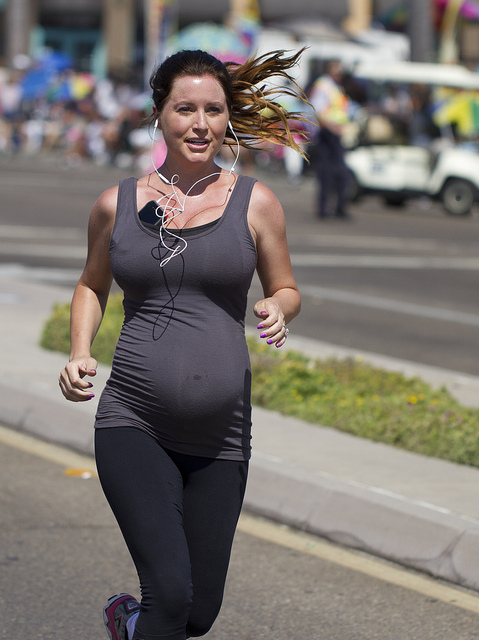Exercise is always a good thing. It has numerous benefits for both our physical health, such as reducing our risks for many diseases, and our mental health, such as helping to maintain positive self-esteem. However, whereas some people have a natural rapport with exercise, others are mortal enemies with it. Studies now suggest that our like or dislike for exercise may be determined before birth.
A study by Professor Robert A. Waterland of Baylor and Texas Children’s Hospital used female mice that like to exercise, and divided them into two groups: one who could use a running wheel throughout their pregnancy and one who didn’t have access to it. Those who did have access ran an average of ten kilometers every night and although this amount decreased as the pregnancy progressed, the mice ran at least about three kilometers every night. Data analysis showed that the offspring of physically active mothers were 50% more active than those born to mice that did not exercise. This characteristic continued in adulthood.
Image Source: Ricowde
This study differed from previous studies about human mothers in that it accounted for the possibility of mothers’ influence on their kids’ physical activity after they were born and the possibility of genetic predisposition. It also has huge implications for overall world health and obesity rates. As obesity is one of the most prevalent conditions in the U.S., leading to increased risks for heart disease, stroke, and/or diabetes, it is imperative to encourage the population to maintain healthy diets and to exercise. The study may encourage women to exercise during pregnancy, as it may offer lifelong benefits for their child.
Currently, doctors recommend that pregnant women, without complications in their pregnancies, exercise for a minimum for thirty minutes per day, which will help to prevent backaches, improve mood, promote better sleep, and reduce the risk of gestational diabetes. If these results can be confirmed in humans, this will be a great way to fight obesity rates and improve the health of our future generations before they are even born.
Feature Image Source: Pregnant runner by Nathan Rupert










